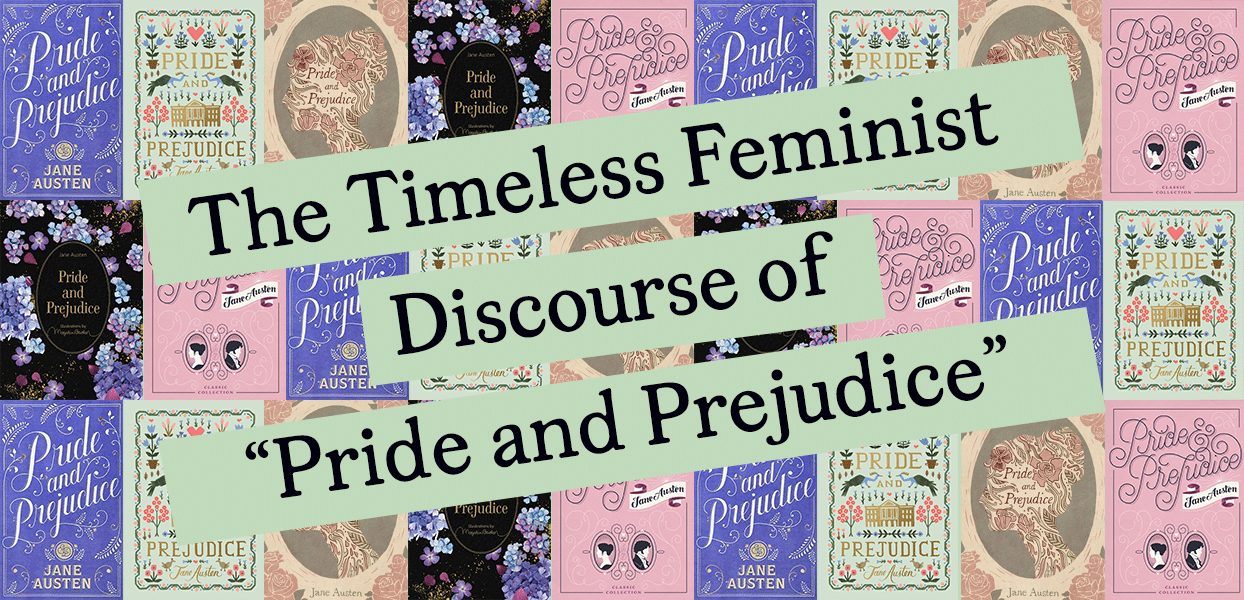Ah, Pride and Prejudice, the timeless tale of love, societal norms, and the struggle for independence, wrapped in corsets and tea parties. Jane Austen—the mastermind behind this social critique disguised as a romantic narrative—certainly had a knack for dissecting the complexities of her era’s expectations, especially for women.
Picture this: a society where marriage is the ultimate goal for women, a ticket out of potential poverty, and a means of social validation. A lower-middle-class bunch with five daughters, the Bennet family embodies this desperation perfectly. Their mother, Mrs. Bennet is a perpetual worrywart on a mission to marry off her offspring like it’s a high-stakes game of matrimonial bingo.
The Bennet family saga is a tale as old as time—the one where societal pressures push women toward the altar as if it were the only route to salvation from destitution. Mrs. Bennet orchestrates her daughters’ courtships like they’re a high-stakes matchmaking tournament, complete with strategic alliances and societal point-scoring.
Fast forward to today’s modern chaos. Raise your hand if you haven’t encountered a modern-day Mrs. Bennet, breathing down your neck about looking perfect, maintaining that flawless body, makeup on point, and impeccable manners. “Or else, dear, you’ll end up alone for all eternity.” Ah, the sweet, sweet irony of it all. As if our sole purpose in life is to parade around seeking validation through a marital Instagram filter.
Yes, it seems Mrs. Bennet’s ghost looms over us, disguised in various forms—sometimes as a well-meaning relative, a ‘concerned’ friend, or, dare I say it, our own inner voice nudging us toward that picturesque life society insists we should aspire to. “Find a man, or you’re doomed!” they whisper, while we strive for independence, equal rights, and the pursuit of our own dreams.
But let’s continue… Enter Elizabeth Bennet, our fiercely independent protagonist. She’s the embodiment of modern-day feminism trapped in a period drama. Despite her progressive thoughts, she’s confined by societal pressures dictating that her destiny is a diamond ring on her finger rather than the dreams in her head.
Then there’s Mr. Darcy, a man dripping with wealth, arrogance, and a generous serving of brooding silence. He’s the epitome of societal privilege and male entitlement, embodying the gender norms of the time—believing he deserves the world and more because, well, he’s a man.
Elizabeth, with her wit as sharp as a rapier, attempts to unravel the enigmatic Mr. Darcy. She’s onto his stoic front, perceiving the age-old ‘man of few words’ routine, where emotions are locked away tighter than a treasure vault. Ah, but does this echo the modern-day scenario? Picture this: the elusive man of the 21st century, guarded like Fort Knox, about as emotionally available as a brick wall.
We’ve all encountered this modern Darcy, haven’t we? The one whose emotional range seemingly spans from poker face to mild intrigue. It’s like trying to decode hieroglyphs deciphering to figure out what’s really going on behind those cryptic, one-word text replies. Emotional vulnerability? Not on his watch.
Much like Austen’s portrayal, today’s society still celebrates men conditioned to keep emotions in check, masking feelings under layers of societal expectations and a ‘tough guy’ facade. It’s as if expressing emotions is a sign of weakness, a crack in the carefully constructed armor.
So, while we marvel at Elizabeth’s attempts to decode Mr. Darcy’s emotions, let’s also ponder the modern Elizabeth’s trying to navigate the labyrinth of modern men who at best pattern their emotional discourse on Pedro Pascal’s Mandolorian and This is Us characters. Ah, the joys of decoding emotional symbols in the modern dating scene!
Despite Elizabeth’s astuteness, societal limitations and a dash of convenience lead her to the ‘happily ever after’ shackles of marriage. Austen crafts a tale that both critiques and surrenders to the norms of her time, leaving us pondering the ‘what-ifs’ and ‘could-have-beens’ of a woman’s life beyond the altar.
The stark reality of the era’s misogyny is evident—women relegated to roles as wives, mothers, and silent listeners to their husbands’ societal conquests. Pride and Prejudice leaves us hanging, wondering about the unwritten sequel, the one where Mr. Darcy, behind closed doors, grapples with the realization that societal positions don’t grant the fulfillment they promise.
But wait, there’s a twist in this modern tale. The modern-day Elizabeth Bennets aren’t just waiting for Mr. Darcy to sweep them off their feet. Oh no, they’re too busy breaking glass ceilings, pursuing passions, and realizing that happiness isn’t nestled in the arms of a partner—it’s found in self-discovery, career milestones, and the freedom to choose their paths, solo or accompanied.
Today’s women are forging their paths, shedding societal shackles, and refusing to be accessories in someone else’s narrative. Women are no longer scripted to play the supporting role; they’re the authors of their destinies, carving careers, and shaping lives beyond the confines of traditional gender roles.
Empowerment now means financial independence, emotional autonomy, and a refusal to be defined solely by marital status. Today’s Elizabeth Bennets are CEOs, astrologists, writers, artists, and everything in between. They’re not waiting for a Mr. Darcy to validate their existence; they’re scripting their own stories, rewriting the narratives that once confined them. I believe there’s a gradual shift in relational dynamics. Women are increasingly aware of their creative power, whether as entrepreneurs or architects of their own dreams. This shift redirects their energy inward, focusing more on crafting the lives they desire and validating their own desires, which gradually places less emphasis on men as the center of their lives and often, the root of their suffering. Hopefully, this change in attitude influences men’s behavior, prompting an evolution in their approach to relationships too.
So, as we chuckle at the antics of Mrs. Bennet and her relentless pursuit of matrimonial success, let’s raise a toast to the modern-day Elizabeths who are rewriting the rules, kicking societal expectations to the curb, and saying, “Thank you very much, but I’ll find my happiness on my own terms, ta-ta!”

